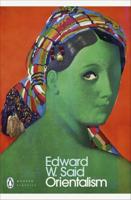Publisher's Synopsis
Established in 2004, Maori Television has had a major impact on the New Zealand broadcasting landscape. But over the past year or so, the politics of Maori Television have been brought to the foreground of public consciousness, with other media outlets tracking Maori Television's search for a new CEO, allegations of editorial intervention and arguments over news reporting approaches to Te Kohanga Reo National Trust.Based on a Marsden Grant and three years of interviews with key stakeholders - staff, the Board, other media, politicians, funders and viewers - this is a deep account of Maori Television in its first ten years. Jo Smith argues that today's arguments must be understood within a broader context shaped by non-Maori interests. Can a Maori broadcaster follow both tikanga and the Broadcasting Standards Authority? Is it simply telling the news in Maori, or broadcasting the news with a Maori perspective? How can it support te reo Maori at the same time as appeal to all New Zealand? How does it function as the voice of its Maori stakeholders?Offering five frameworks to address the challenges of a Maori organisation working within a wider non-Maori context, this is a solidly researched examination of Maori Television's unique contribution to the media cultures of Aotearoa New Zealand.










